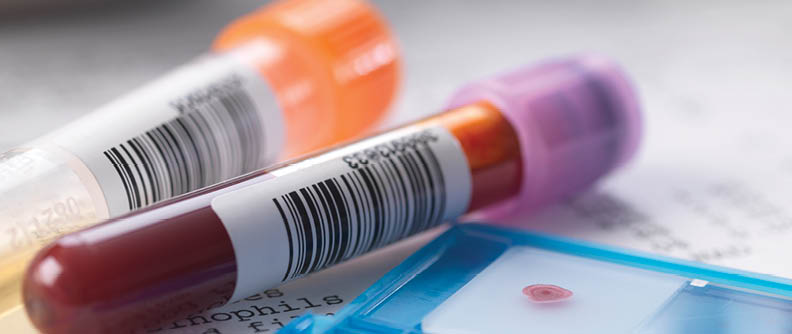While you’re pregnant, it’s important to monitor your iron level and antibody status. Blood tests for both can help ensure a healthy pregnancy. Knowing why will help you understand what to expect from these tests, as well as how crucial they are to you and your baby.
Iron’s role in pregnancy
Iron can help you feel strong and healthy. If you don’t have enough of it in your blood, you could have a condition known as iron deficiency anemia. Iron deficiency has been associated with preterm birth and low birth weight. It is also associated with certain maternal complications such as infections and needing to have a blood transfusion.
To get more of this key nutrient, you can start by taking your prenatal vitamins every day and eating iron-rich foods such as red meat, fish , poultry, eggs, raisins, leafy green vegetables, beans, lentils and whole grains. Vitamin C helps your body absorb iron, so it can also help to drink more orange juice or eat other foods, like citrus fruits, that are high in vitamin C.
Your clinician might tell you to take an iron and possibly a vitamin C supplement. Be sure to take them exactly as recommended. Your body can only absorb a certain amount at a time so it is better to take additional supplements at a different time of day than your prenatal vitamin.
If you have severe anemia late in pregnancy, you can’t tolerate oral iron, or your levels do not improve enough, your clinician may recommend intravenous (IV) iron.
Other types of anemia, such as thalassemia and sickle cell, are also tested for as part of regular pregnancy screening. Your clinician will discuss with you in detail if you happen to have one of these uncommon anemias.
Understanding antibodies: Rh factor and sensitization
One specific marker on red blood cells, called Rhesus factor or Rh factor, is important to test for during pregnancy.
Each person has either Rh-positive or Rh-negative blood. Your clinician will confirm your blood type in your first trimester with a blood antibody screening test.
If you have Rh-negative blood and your baby’s father has Rh-positive blood, you could develop antibodies to your baby’s blood. This only happens if there is mixing of your blood with your baby’s, and is known as Rh sensitization.
If you are Rh negative, your clinician will take the following steps to prevent possible complications from Rh sensitization:
- Perform a second blood antibody screening test at 24 to 28 weeks.
- Give you an Rh immune globulin (RhoGAM) shot around 28 weeks to prevent you from developing antibodies to your baby’s blood.
- Give you another RhoGAM shot within 72 hours after birth if your baby’s blood tests show that they are Rh positive.
